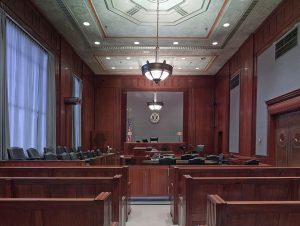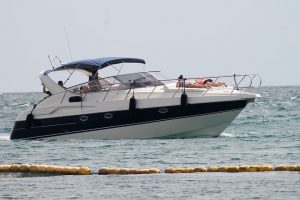 A 24-year old Washington D.C. man was recently sentenced to over 4 years in federal prison followed by 3 years of probation for striking an SUV and killing the driver on the Baltimore-Washington Parkway. According to the plea agreement the man was involved in a collision with a D.C. Metro police vehicle but rather than stop he fled the scene into Maryland via the parkway. Despite being pursued by a Metro police vehicle the young man kept fleeing at a high rate of speed even after one of his tires blew out. He then began to pass slower moving vehicles on the right shoulder and veered over several lanes of traffic at a ramp to Interstate 495. It was at this point that the D.C. man struck a Honda CR-V that was stopped in a painted safety zone between lanes of travel causing it to spin around and eventually roll over on its side.
A 24-year old Washington D.C. man was recently sentenced to over 4 years in federal prison followed by 3 years of probation for striking an SUV and killing the driver on the Baltimore-Washington Parkway. According to the plea agreement the man was involved in a collision with a D.C. Metro police vehicle but rather than stop he fled the scene into Maryland via the parkway. Despite being pursued by a Metro police vehicle the young man kept fleeing at a high rate of speed even after one of his tires blew out. He then began to pass slower moving vehicles on the right shoulder and veered over several lanes of traffic at a ramp to Interstate 495. It was at this point that the D.C. man struck a Honda CR-V that was stopped in a painted safety zone between lanes of travel causing it to spin around and eventually roll over on its side.
The plea to one count of involuntary manslaughter took place back in September at the Greenbelt federal courthouse in front of a United States District Judge. It seems from the press release that the man was sentenced under a 18 U.S. Code section 1112, which makes it illegal under federal law to commit manslaughter in the territorial jurisdiction of the United States. Involuntary manslaughter is a felony under federal law, which carries a maximum penalty of 8 years in prison. Manslaughter is defined as the unlawful killing of a human being without malice. This basically means that the defendant did not possess the intent to kill, but by his or her unlawful actions caused the death of another person. Voluntary manslaughter, a 15-year felony, occurs when the defendant kills another person after a sudden quarrel or in the heat of passion. Voluntary manslaughter cases are frequently charged along with murder, as there can be a fine line between the two. Involuntary manslaughter on the other hand occurs when the defendant kills another during the commission of an unlawful act not amounting to a felony, or when the defendant kills another doing committing act without due caution. In this case fleeing the police and leaving the scene of an accident were the acts that caused the accident, which ultimately caused the death of the victim.
The federal government is responsible for maintaining and policing the B-W Parkway, and therefore territorial jurisdiction is satisfied. Typically, the Maryland-National Capital Park Police is the arresting agency that handles cases on the B-W Parkway and other parkways such as the Clara Barton. In criminal cases occurring on the parkways in Maryland law enforcement can choose to charge a defendant under federal law or under any applicable Maryland law. The defendant could have been charged under Title 2 of the Maryland Criminal Code for manslaughter by vehicle or vessel (boats). State law breaks up manslaughter by vehicle or vessel in two categories, with the most serious being with gross negligence. This charge is a felony that carries a 15-year maximum penalty, while the lesser form, criminal negligence, is a misdemeanor with a 3-year maximum penalty.
 Criminal Defense Lawyer Blog
Criminal Defense Lawyer Blog









